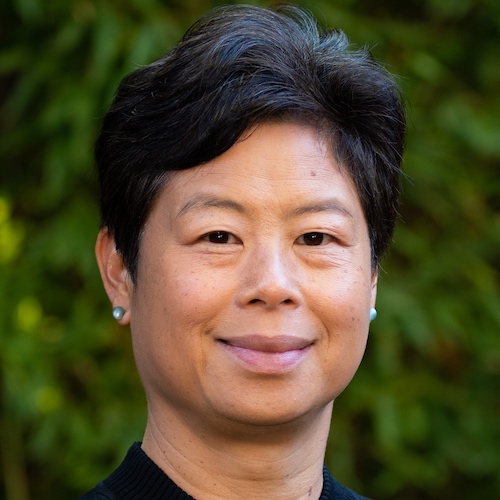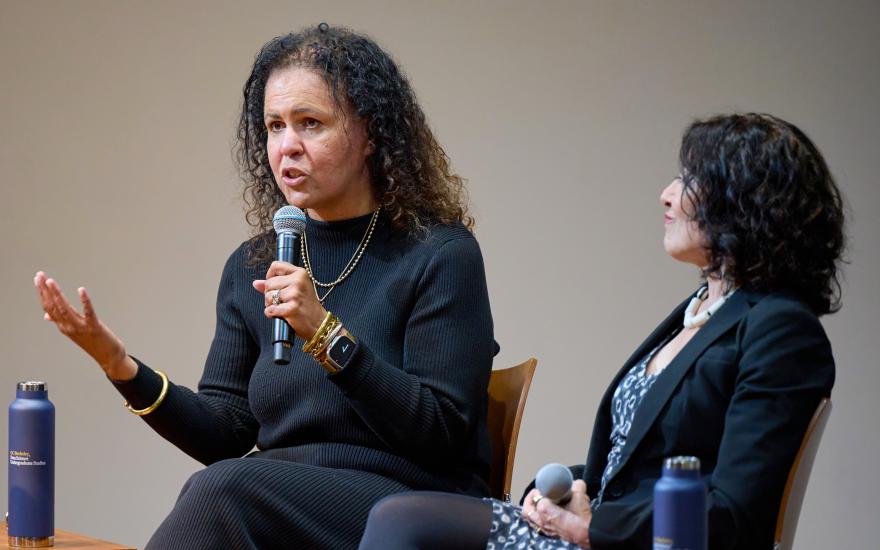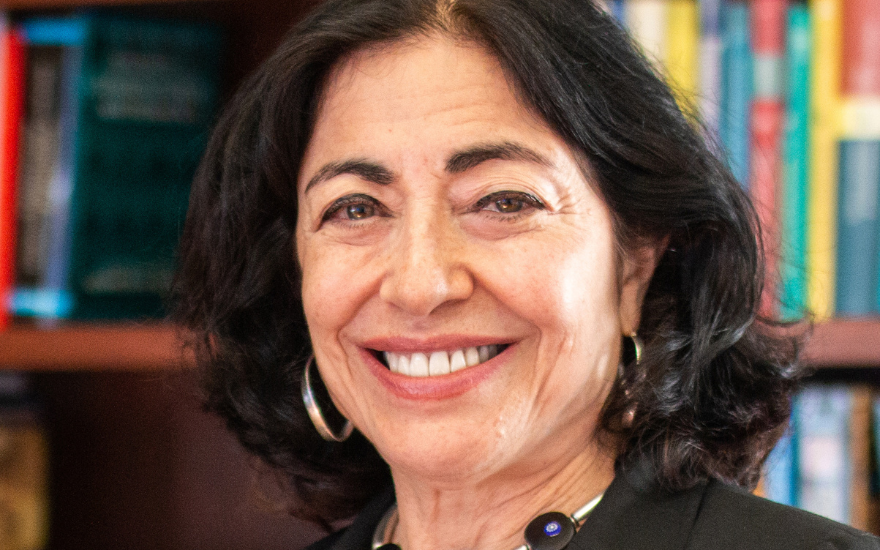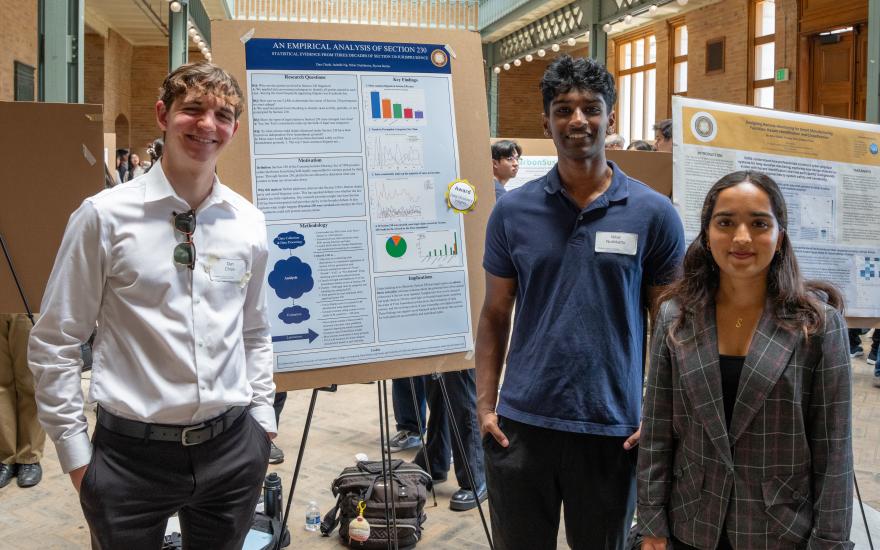Nearly 20 years ago, the World Health Organization (WHO) held a contentious meeting in Geneva. Ida Sim was leading the charge to enact a global policy requiring the registration of clinical trials before they even started, which would promote research collaboration and transparency.
Sim had already worked for a year and a half on the proposal and received pushback from scientists and companies who wanted to keep their studies and data private. Despite the struggle, the meeting’s delegates backed the plan.
“It was huge,” Sim remembered. “That is my mark on the world.”
Sim, now co-director of the UC San Francisco UC Berkeley Joint Program in Computational Precision Health (CPH), has spent her career pioneering ways to make medical data more open and shareable. She helped pave the way for more accessible health data. Now, she wants CPH to train the next generation to harness artificial intelligence to develop more precise, personalized treatments. Through it all, she’s kept her role as a primary care doctor central to her work.
“My fundamental motivation is better care for our patients in a way that's holistic,” she said.
Sim will be honored with the Precision Medicine World Conference’s Luminary Award in February for merging policy, computer science and AI to help define the future of medicine.
When Sim attended Stanford University’s School of Medicine in the 1990s, she couldn’t help but feel the tug of Silicon Valley and artificial intelligence. She noticed some students in her classes seemed like naturally good doctors, while others had to work harder to learn it. She wondered if computers could help doctors learn faster and provide better care.
She eventually pursued a Ph.D. in AI and informatics to increase her knowledge. For her dissertation, Sim built an online database that could host the data from clinical trials and facilitate doctors’ decision-making and learning.
At that time, it was relatively new for doctors to perform medicine based directly on data in the academic literature and randomized controlled trials—what’s called evidence-based medicine. Often, they’d lean on anecdotes and experience instead. She hoped the clinical trial data bank would help doctors practice evidence-based care. It also seemed to her that clinical trial data that relied on patients' participation should be public.
“These are patients who literally gave their blood for this stuff,” she said.
Sim’s dissertation led to the policy changes she proposed at the WHO and her work today. Nearly 30 years later she is also leading a data-sharing organization called Vivli, which she co-founded.
Vivli, the world's largest platform for sharing participant-level data from human-experience experiments, allows scientists to easily look up clinical trials and see the data. Seeing her work on data sharing and reuse from her Ph.D. grow into Vivli has “been incredible,” Sim said.
Clinical trials are far from the only source of useful medical information, though. Nowadays, individuals have access to all kinds of health information—such as their heart rate, oxygen levels, sleep cycles, physical activity and much more—through wearable devices like a wristwatch.
“The word ‘game changer’ gets used a lot,” she admitted, “but I think it is a game changer.”
Sim and her collaborators are leading the way to determine how patients and clinicians can make use of it. By combining different types of medical information, researchers and doctors could learn patterns that allow for personalized prevention, diagnosis and treatment.
“With sensors and with apps, we can be out there,” she said. “We can get beyond the walls of the clinic or the hospital.”
But the apps, sensors and medical equipment that patients use at home are not built to work together or present their data in one place, Sim said. In 2011, she founded a startup called Open mHealth, which aims to address this issue. The open-source software integrates data from various mobile sources and health records, advancing an interoperability standard so that patients and doctors can have up-to-date measurements that matter to their health.
Sim isn’t done yet. Through yet another initiative — JupyterHealth — she is teaming up with open-source computer science pioneers to co-create a privacy-preserving platform that integrates health data from wearables. Researchers will be able to join data from multiple sources and use that data to discover biomarkers of disease and drive treatment.
Sim and her collaborators are testing the first-of-its-kind open-source platform with a pilot effort — the Agile Metabolic Health Project — where they will compile and analyze continuous glucose monitoring data and other health metrics, like sleep and exercise, from patients with diabetes. With AI, Sim and her colleagues seek to use the data to learn better ways to manage diabetes in real time.
“The word ‘game changer’ gets used a lot,” she admitted, “but I think it is a game changer.”
“Ninety-nine percent of the time patients are by themselves. They're their own chronic care physician,” Sim said. “There's so much opportunity to help them do their own care.”
As a primary care physician, Sim said she wants the tools she’s helped develop to give her patients the freedom to manage their health between visits to the clinic. It’s increasingly important for patients to have data-driven methods to do that. Sixty percent of people in the United States have a chronic condition, while the healthcare system is experiencing a doctor shortage.
“Ninety-nine percent of the time patients are by themselves. They're their own chronic care physician,” Sim said. “There's so much opportunity to help them do their own care.”
Looking forward, she expects that the UCSF UC Berkeley Computational Health Program –another pioneering initiative–will help make her vision for more holistic patient care a reality through its research.
“The more we learn about biology, the more we can be precise about how we treat each individual patient,” Sim said. “That's the intellectual excitement."




